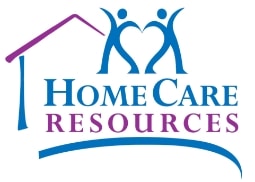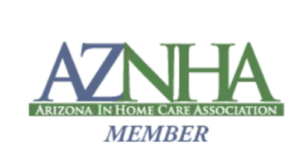
Shingles is a condition triggered by a common virus that affects the skin. It is most common in those over the age of 50. Senior home care professionals know the common signs of shingles. This knowledge is essential for proper care.
The Centers for Disease Control and Prevention states that one in three people over 60 will be diagnosed with shingles in their lifetime. A quick assessment of symptoms and a thorough medical evaluation are critical for effective treatment.
Common Symptoms of Shingles
Typically, seniors will notice a line of blisters or rash accompanied by a burning sensation or pain. The rash is often itchy, which can increase the likelihood of infection if seniors open the rash by scratching or if tight clothing irritates the rash. The effects of shingles can last anywhere from three to five weeks.
Seniors may complain that their skin is sensitive and pull back in pain when it is touched. They may also have a fever, nausea, or headaches. Blisters are filled with fluid and are often hard to the touch. The shingles rash is often seen on the face or torso. Which may be one of the first signs that senior home care providers will see.
By being vigilant, senior home care providers might catch symptoms of shingles before the rash develops. Here are some common symptoms:
- Sensitivity to light
- Increased incidence of headaches
- Recurring fevers
- Increased sensitivity to the skin
For seniors with weakened immune systems, a diagnosis of shingles might be harder to fight off than when it occurs at a younger age.
Options for Treatment of Shingles
A shingles vaccine is available. The vaccine is given in two doses and is typically available at the doctor’s office and certain pharmacies. It is recommended that those over 50 years old talk with their medical provider about the vaccine. Seniors diagnosed with shingles should wear loose-fitting clothing, bathe with an oatmeal bath, and keep the skin clean. Increased stress can increase pain, so relaxation is important while dealing with shingles.
Medical professionals may prescribe pain, antiviral, and anticonvulsant medications. Senior home care providers and loved ones should pay attention to how seniors react to these medications as they may decrease their appetite or cause seniors to be dizzy. Typical recovery from shingles can take up to six weeks. It is important during that time to continue to be vigilant, manage any pain, and continue working toward a stress-free environment.
Complications of Shingles
For seniors, there are increased risks of shingles even after the rash fades. Senior home care providers can watch for long-term nerve pain, signs of vision loss, or an increased risk of stroke. Loved ones can talk with providers and physicians about possible complications to ensure proper care is taken to avoid additional issues.
Having a home care professional with seniors offers increased peace of mind for concerns with issues such as shingles and other illnesses. Senior home care members can monitor health, provide essential socialization, and work with seniors to ensure they’re active throughout the day
If you or an aging loved one are considering hiring Senior Home Care in Paradise Valley, AZ, please contact the caring staff at Home Care Resources at (602) 443-4700.
- Six Warning Signs of Diabetes to Watch for in Seniors with Dementia - May 19, 2025
- Understanding Chronic Conditions in Seniors: The Importance of Support - May 9, 2025
- Helping Your Elderly Loved One Maintain Healthy Vision - April 24, 2025




